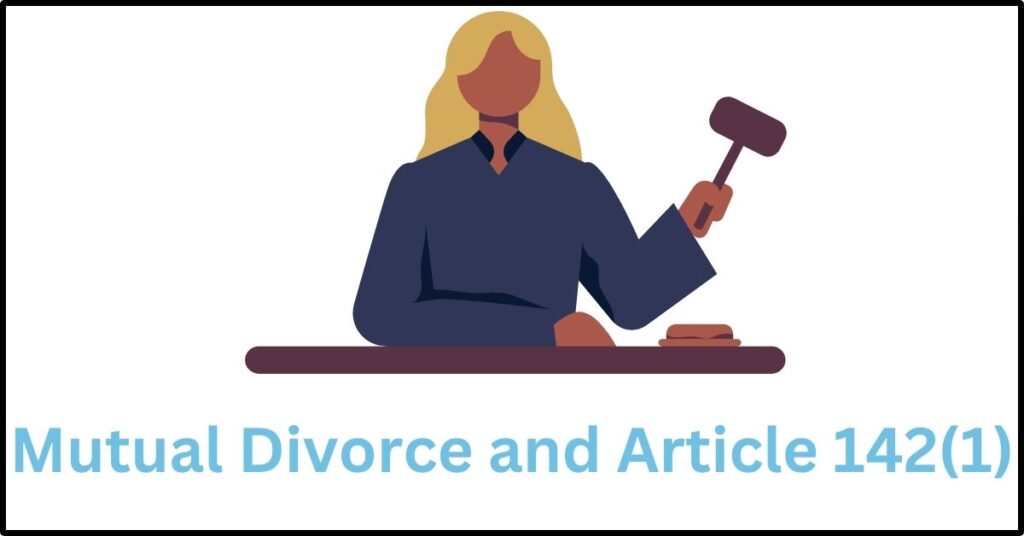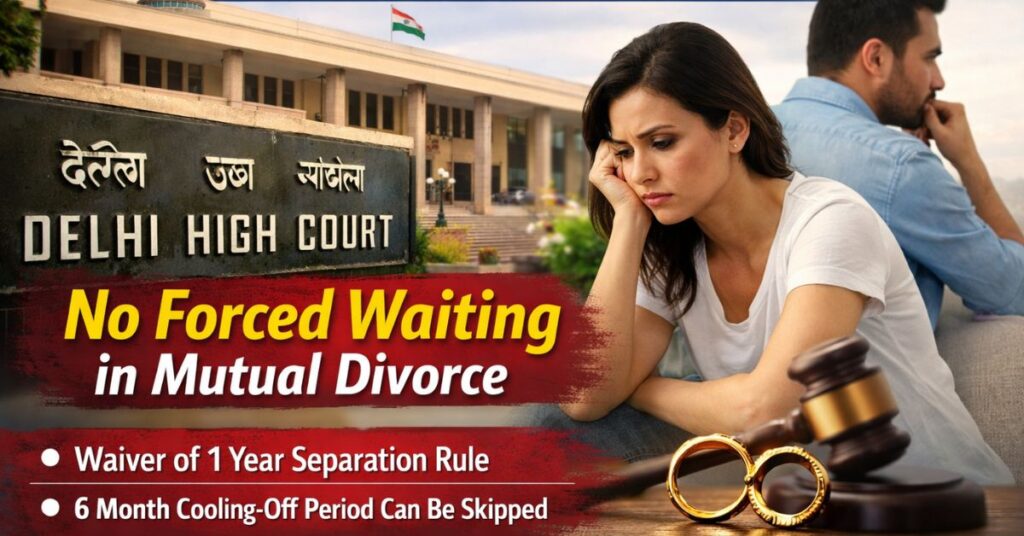Introduction
In a significant decision, the Hon’ble Supreme Court of India addressed crucial questions concerning mutual divorce in its judgment on TRANSFER PETITION (CIVIL) NO. 1118 OF 2014. This article delves into the court’s answers to three essential questions related to the scope of power and jurisdiction under Article 142(1) of the Constitution of India, the court’s authority to grant divorce by mutual consent, and the dissolution of marriage due to irretrievable breakdown.
Question 1: The Scope and Ambit of Power and Jurisdiction under Article 142(1)
The Supreme Court clarified that it possesses the power to depart from procedural and substantive laws while considering matters under Article 142(1). This power is exercised based on considerations of fundamental public policy. The court acts as a problem solver, balancing conflicting claims and ensuring equity between the parties involved. However, substantive provisions enacted by law should not be ignored while exercising this power.
Question 2: Granting Divorce by Mutual Consent and Other Connected Proceedings
The court acknowledged that it can exercise power under Article 142(1) to grant a decree of divorce by mutual consent, even if it bypasses the period and procedure prescribed under Section 13-B of the Hindu Marriage Act. This discretion is based on settlement between the parties. The court emphasized that this power should be exercised cautiously, considering the factors stated in relevant judgments. Additionally, the court can also quash and set aside other connected proceedings, including criminal cases, using its powers under Article 142(1).
Question 3: Divorce in Case of Irretrievable Breakdown Despite Opposition
The Supreme Court recognized its discretionary power to dissolve a marriage on the grounds of irretrievable breakdown, even if one of the spouses opposes the divorce. This discretionary power enables the court to ensure complete justice to the parties involved. The court emphasized that it would assess the established facts to determine if the marriage has completely failed and if there is no possibility of reconciliation. The circumstances and background of the party opposing the dissolution are also taken into consideration.
No Directions to Family Courts
It is of utmost significance to emphasize that the judgment refrains from issuing any directives to Family Courts regarding the circumvention of statutory provisions outlined in section 13B for mutual divorce or the dispensation of divorce based on irretrievable breakdown of marriage. The benchmark for a Family Court to waive off the six-month period remains the directions set forth in the case of ‘Amardeep Singh v. Harveen Kaur.’
Conclusion
The Hon’ble Supreme Court, in its judgment on TRANSFER PETITION (CIVIL) NO. 1118 OF 2014, clarified the scope and ambit of its power and jurisdiction under Article 142(1) of the Constitution of India. The court’s discretion to grant divorce by mutual consent, dispensing with prescribed procedures, and its authority to dissolve a marriage based on irretrievable breakdown were affirmed. These rulings serve as crucial guidance for future cases concerning mutual divorce and empower the court to deliver justice and equity.




